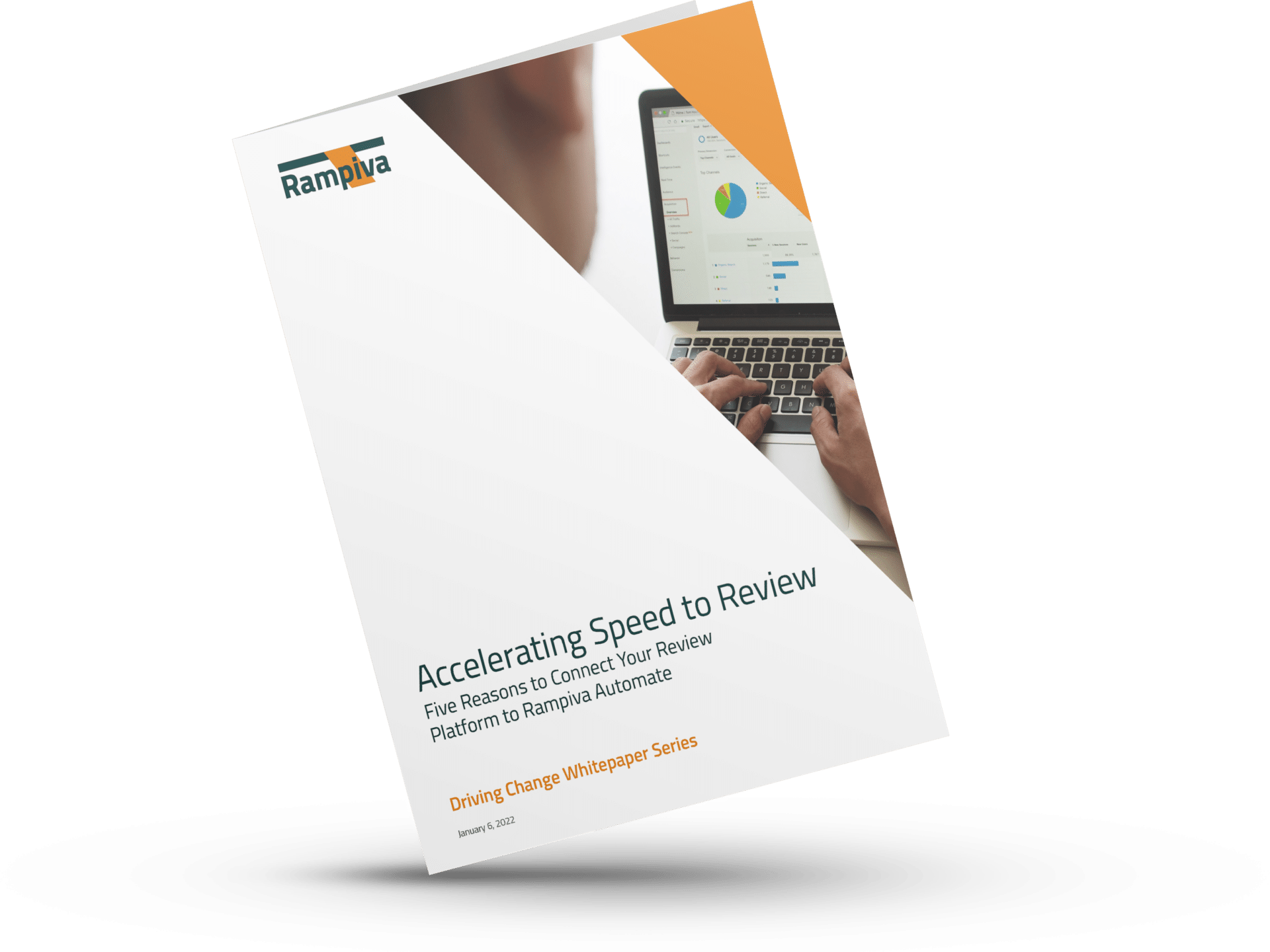Enhancing Nuix Processing with Rampiva
A round of applause for James Merritt’s great blog last week at Forted Bunker, “Relativity Processing vs. Nuix Workstation”. He provides a detailed technical comparison between the processing capabilities of each platform and adds an essential layer of expert perspective. These types of transparent evaluations help everyone, from buyers to developers to up-and-coming professionals.
Since one good turn deserves another, this blog will add onto Merritt’s’ analysis by highlighting the areas where Rampiva Automate helps enhance the Nuix processing offering, including:
- Why a complete metadata profile is important
- Upgrading reporting – and, adding notifications
- Easy upload to review & “Drag and Drop” data submissions
- Big picture analysis on multi-use platforms
Metadata
Merritt opens by highlighting that “Nuix […] allows for much deeper processing”. He connects this capability to Nuix’s ability to support forensic investigations, and a faster first-look at processed items.
We’d add to this scalability – by capturing metadata across so many types of data, teams are more likely to be able to use Nuix to process a specific set of data. This is helpful for teams building an automated data processing queue because that consistency translates into fewer touch points to keep the data moving forward, particularly after-hours. The completeness of the metadata also allows for more nuanced and targeted scripting logic, which Nuix teams can use to trigger remediation workflows, escalate alerts, and perform custom analytics.
With tools like Rampiva, the power of Nuix processing engine transforms the economics of data processing and adds important early insights.
Reporting & Notifications
The Reporting component of “Relativity vs. Nuix” has great detail, including some nice screenshots. Merritt draws an important distinction between Relativity processing, which provides high-quality summary reporting at multiple stages in the workflow, and Nuix’s main report which comes at the very end of the process. If your team has to interpret these reports to manage the project, or provide them to the end-client, the Relativity approach may resonate.
However, by automating the data processing in Nuix with Rampiva, teams can build highly customized reports at multiple points in the workflow.
Furthermore, Rampiva aggregates performance, utilization, and some case-specific information into a centralized environment that can be accessed in real-time through BI platforms like PowerBI. This helps teams administer, optimize, and manage activity across all Nuix Cases, and gain insight into patterns across projects.
To learn more about examples of this reporting, view the Rampiva Metrics Blog Series.
Easy Upload to Review
Throughout this comparison, Merritt is careful to highlight that the two tools aren’t entirely comparable within the category of eDiscovery processing. Nuix Workstation is built for a variety of projects, and Relativity processing is really only designed to get data into Relativity review.
A consequence of that focus is that Relativity provides “the ability to export something that is immediately client friendly.” The counterweight to that is that the export is limited – if you’re not reviewing data in Relativity, Relativity processing won’t do you much good.
In contrast, Rampiva provides custom export capabilities from Nuix and automated loading into Relativity. It’s a lot easier to get data through Workstation into Relativity (or, Nuix Discover) through Rampiva than in a manual environment.
For detail here, check out our Whitepaper, Accelerating Speed to Review.
Rampiva also provides a “direct-to-processing” upload feature. Connecting this functionality with the 24/7 job queue and the easy export-to-review capability provides for a seamless “desktop to review” self-service workflow, powered by the Nuix Engine.
Big Picture
Merritt’s analysis – and, many of the blog comments reinforce this conclusion – is that a lot of the value of Nuix Workstation is that the tool can also process data for other uses cases. In “Relativity vs. Nuix,” the focus is digital forensics, but Nuix has case studies covering incident response, compliance monitoring, and information governance.
This value is put into hyper-drive with tools like Rampiva because teams suddenly have access to more processing capacity, their team is more productive, and they have more control over every single activity. This can make it cost-effective for teams to expand their remit to offer services outside of eDiscovery.
While this sort of transformation is not a fit for every department, it is something to think about when picking data processing tools.
